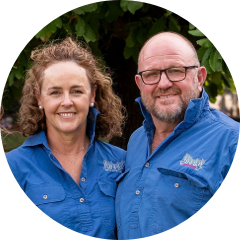Sustainable Agriculture Victoria: Fast-tracking Innovation Initiative
This project was completed in 2017.
Project Officer
Dr Cassandra Schefe
WHY THIS PROJECT WAS NEEDED
Riverine Plains had undertaken extensive work in the area of stubble management and soil carbon. This project allowed for the further investigation of nitrogen availability and release in no-till systems, and the publication and wider communication of Stubble Project and Soil Carbon project results to farmers. These publications were designed to increased adoption of farming practices for sustainable and profitable farming businesses.
In short: This program delivered enhanced understanding of nitrogen availability in no-till systems, shared knowledge from the Soil Carbon project for increased uptake and evaluated long-term implications of stubble incorporation techniques through field demonstrations and publications.
Project focus
This program had three main objectives:
1. Increase the understanding of the scientific processes underpinning nitrogen availability and release in no-till systems by:
- Adding value to the soil carbon project and nitrogen management field day.
- Investigating nitrogen and water, which was extended to a group of farmers at Rutherglen, as part of a jointly funded program with the North East Catchment Management Authority. This was delivered through the field day, 'Understanding nitrogen in our soils' and subsequent deep nitrogen sampling, incremented to depth (0-10, 10-20, 20-30, 30-60, 60-80cm) which was conducted at 11 properties. Results from this investigation were detailed in the article Seasonal soil moisture & N availability, published in Research for the Riverine Plains, 2016.
2. Increase the uptake of knowledge generated from the completed Soil Carbon project, through the development of an easy-to-understand publication which explains the project and its outcomes.
- The Soil Carbon project has been extended to include an extra set of soil sampling as well producing the publication containing the key messages from the project. Soil carbon in cropping systems.
3. Increase the understanding of the long-term implications of different stubble incorporation techniques. This was demonstrated through a machinery field day, which evaluated eight tractor-drawn implements designed to incorporate stubble. This data has been detailed in an extensive article in the Riverine Plains newsletter.
- Within the GRDC-funded project Maintaining Profitable Farming Systems with Retained Stubble in the Riverine Plains Region (2013–18), large-scale replicated trials consistently showed that no-till stubble retention (NTSR) treatments show a biomass lag. While differences in light interception and temperature were quantified within the GRDC funded Stubble Project, detailed nitrogen sampling throughout the season was outside the project’s scope. To understand if the biomass lag of NTSR crops was due to differences in nitrogen supply between stubble treatments, detailed nitrogen sampling was carried out at each of the Focus Farm trial sites established as part of the GRDC funded Stubble project during 2016. This sampling effort was carried out under the Sustainable Agriculture Victoria: Fast-Tracking Innovation initiative. The results of the 2016 sampling were detailed in the article The impact of stubble treatment on soil nitrogen supply to crops, published in Research for the Riverine Plains, 2017.
Find out more
For more information, please email Senior Project Manager Jane McInnes at jane@riverineplains.org.au
Project investment
MORE ON Grains & Soils
Our research enhances food production, increases environmental resilience and improves community connection across the Riverine Plains. See how our research creates impact.
-
Grains
Sustainability
-
Grains
Business
-
Grains
Sustainability
-
Grains
Livestock
-
Grains
Livestock
-
Soils
Sustainability
-
Soils
Sustainability
-
Grains
Sustainability
-
Grains
Business
-
Grains
Sustainability
-
Grains
-
Grains
-
Soils
Grains
-
Soils
Sustainability
-
Grains
Soils
-
Drought
Grains
-
Soils
Grains
-
Grains
-
Grains
Soils
-
Soils
Grains
-
Fodder
Grains
-
Grains
-
Soils
Sustainability
-
Grains
-
Soils
Sustainability
-
Grains
Soils
-
Sustainability
Grains
-
Grains
Sustainability
-
Soils
Grains
-
Soils
Climate
-
Grains
Sustainability
-
Soils
Climate
-
Livestock
Grains
-
Grains
Soils
-
Sustainability
Grains
JOIN RIVERINE PLAINS
Riverine Plains provides opportunities to see new research and innovation, connect with rural communities, and attend informative events.


